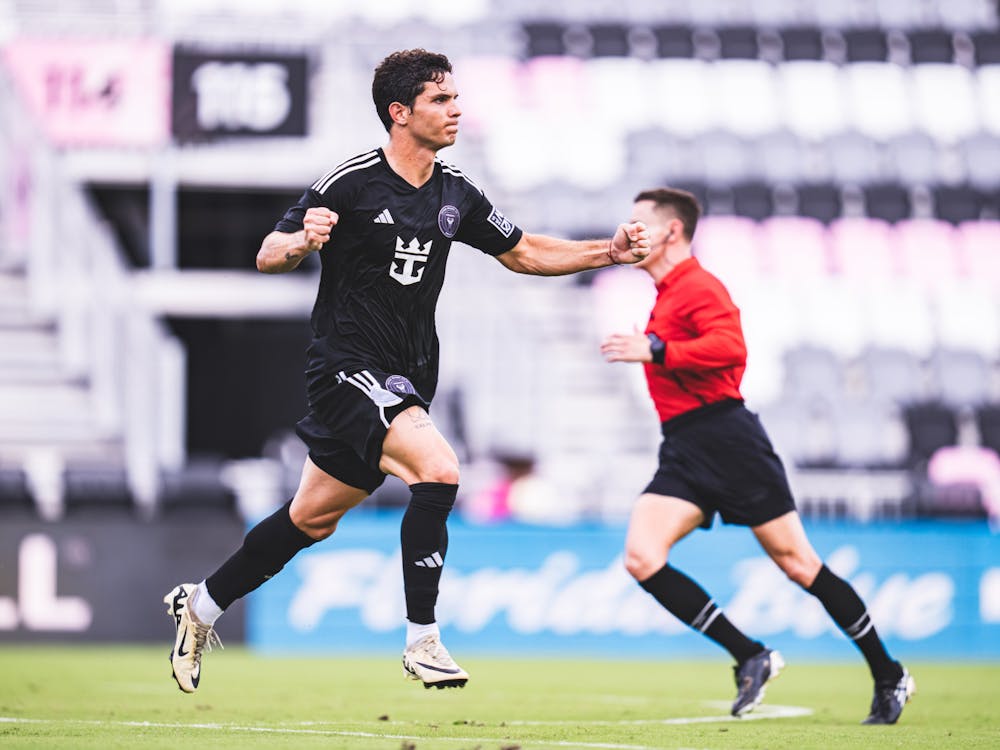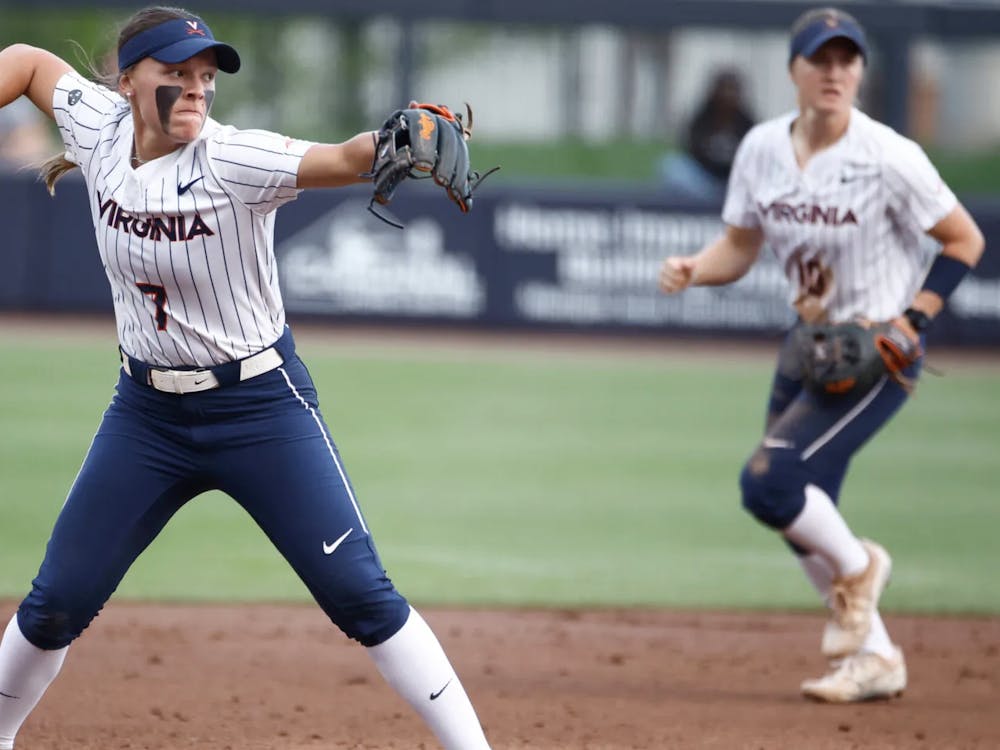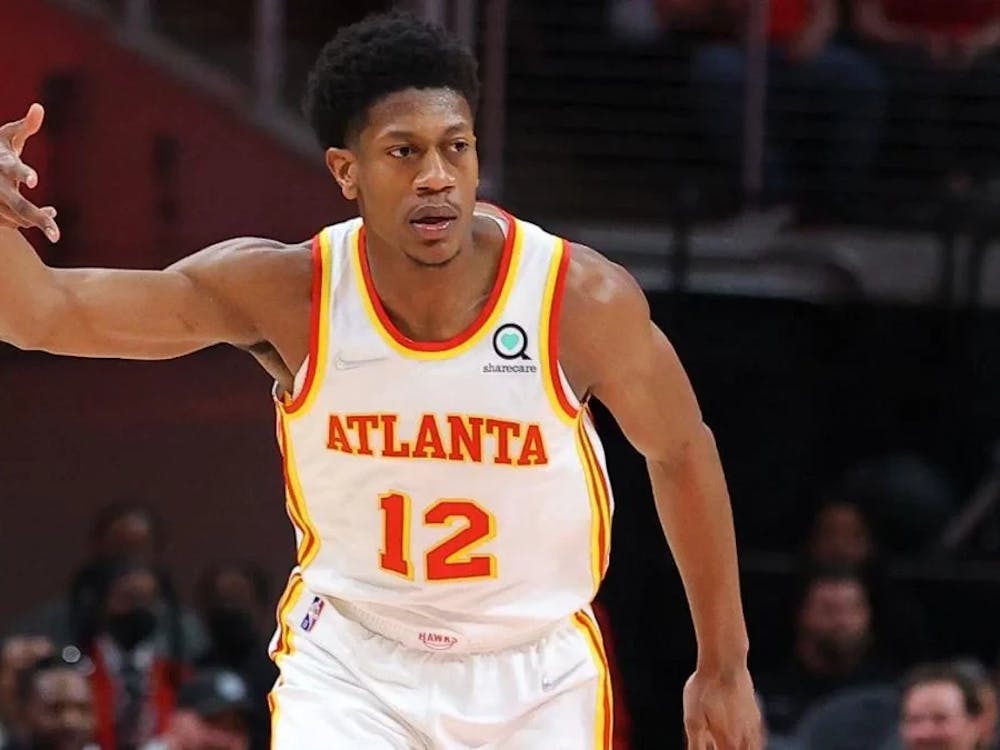At 2:44 p.m. Monday, Deadspin tweeted out a headline to a story that read: “How an Achilles Tear Affects NBA Players (or why Kobe Bryant is screwed).” The tweet demonstrated a willing conformity to the parameters of the sports world, in which wins are triumphs, losses are tragedies and hard work, resilience and selflessness are the three pillars of excellence. In that context, in which we constantly evaluate and reevaluate legacies by wins and losses, Kobe Bryant’s season-ending Achilles tear after several months of Herculean performances indeed qualifies as something of a disaster.
Approximately six minutes after that tweet, those at the finish line of the Boston Marathon encountered a real disaster. For the past few days, media outlets have inundated shocked and despondent Americans with the anecdotes of carnage, heartbreak and valor that emerged in the wake of the tragedy. Such a senseless, jarring event serves notice that no one fortunate enough to experience this life can really consider himself “screwed.” Much less a multi-million dollar professional athlete who’s already cemented his legacy as one of the greatest basketball players of all time — and dodged incarceration for sexual assault charges; probably shouldn’t print that, but you know, just saying.
Every few months or so, the real world rudely interrupts the sports world’s petty deliberations to recalibrate our notions of real triumphs and tragedies. It happened here three years ago, when Yeardley Love’s murder stung the University community and compelled people to engage in heavy evaluations of “lacrosse culture” rather than simply enjoying lacrosse itself. We even saw it Tuesday, when many Virginia faithful cast aside their disdain for Virginia Tech football to stand in solidarity with their in-state nemeses on the anniversary of the Blacksburg shootings.
For the most part, we absorb these system shocks and lessons before quickly moving on. Jovan Belcher’s suicide hardly dissuaded us from watching the NFL Playoffs, for instance, and I’ll start cheering for Virginia Tech football the day Rush Limbaugh and Bill Maher decide to move into a bachelor pad together. Ultimately, despite the regular intrusion of reality, we always dive right back into the swimming pool of sports escapism.
What distinguishes the marathon bombings is that, as this paper’s own editorial indicated Tuesday, they targeted “regular people” dabbling in athletics rather than professionals. The great thing about the word athlete is that it encompasses everyone — from the pros to the intramural scrubs — who has ever had the courage to compete. And no athletic endeavor requires more bravery than the marathon, an agonizing 26.2-mile gauntlet testing combined mental and physical endurance. Hundreds of professionals ran Monday and deserve our endless admiration, but so too do the average Joes who resolved to go through the hell of a marathon to reach the heaven of finishing one.
Monday’s tragedy, then, didn’t impose the real world on the sports world so much as it exposed how intimately connected the two are. By harming those who sacrificed their bodies for reasons more pure than legacies, contracts and everything else that dominates the sports media airwaves, the parties responsible for the bombings ensured that even the part of the sports world away from the ESPN cameras surrenders to the whims of an unpredictable, often sinister life. People whose names most of us will never learn suffered Monday, and did so because they were either participating in — or appreciating as spectators — humanity’s most ennobling athletic event. No matter how we try to use sports as a buffer, reality eventually confronts us.
That lesson, though, need not be a discouraging one. Faced with the threat of harm and heartbreak, many people ran toward the destruction and performed exemplary acts of generosity to help the bombing’s victims. These people, in other words, sacrificed their safety and their time to achieve something bigger than themselves — a quality which participation in athletics instills in those who dare to immerse themselves completely in the “sports world.”
In the end, hard work, resilience and selflessness are the three pillars of excellence in life as they are in sports life. This new Boston Massacre, in obliquely drawing our attention to the virtue of marathon running, should serve not to discourage love for sports but to emphasize their significance in forming a proper response to those inevitable interloping moments of human crisis that lay ahead. Were it not for the marathon, we could not know how to live like we’re running one: determined to push through the pain to reach the finish line.
Human nature being what it is, this episode will fade to the periphery of public consciousness within a matter of weeks. We should, however, harbor no qualms about the headlines reverting from Boston coverage to discussions of “heroic” triple-doubles and “calamitous” strikeouts. Upon close inspection, many of the of the iconic athletes we place on pedestals are not unlike those marathoners: courageous, determined and human. In the end, this ordeal offers us an opportunity to think ever so slightly about how we can use the lessons of everything from our little sisters’ swim meets to the NBA Finals to brace ourselves for the next collision between the real and sports worlds.
And in times like these, a little thought can go a long way.




